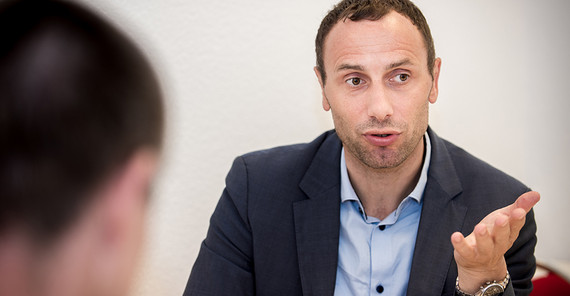What exactly is care work?
On the one hand, it is a matter of providing and caring for elderly family members who need support in their everyday lives, and on the other hand, it is a matter of caring for, educating, and actively organizing the leisure time of children and adolescents. However, it also includes casually helping out in other households, such as elderly neighbors, and household management activities such as repair work, organizational tasks, garden maintenance, etc.
How do these care tasks affect those who take them on?
Care work can be very stressful and have an impact on mental and physical health. Parents with young children sleep very poorly for years. In addition, they are often subject to high professional demands. Women are affected by these multiple pressures to a larger extent, as they do significantly more care work than men.
So why is it mainly women who take on these tasks?
There are studies that show care work can amount to ten to twelve hours per day in households with children. These are averages. Individual households may deviate from this. Women still take on a significantly larger share of these tasks in Germany. Depending on the household’s employment situation, women do between 35 and 150 percent more care work than men. There are many different reasons for that. Societal norms and gender roles play a part in this, as do the individual preferences of men and women and the division of labor agreed upon among couples for their households. Since it is still common for men to work in higher-paying jobs, couples sometimes decide to have women reduce their working hours for economic reasons, if that is necessary to be able to provide a high volume of care work. For example, if there are three or more small children in a household as well as an elderly person to care for.
Wouldn’t it be possible to pay for care work?
In the case of in-home care for family members with a high care level rating, there is financial support from public long-term care insurance. Childcare work is not something you get paid for in Germany – but neither is it in any other European country. In my view, it is understandable that this demand is being made. However, the proponents of this idea would have to provide better arguments as to how this can be implemented in concrete terms. Will someone who cares for two children at home be paid more than someone who cares for one child? Will taxes be increased in Germany for this, or what other social benefits will be eliminated? A realistic policy demand would be to increase the pension entitlements of women and men who have to reduce their working hours or even quit their jobs due to major domestic care responsibilities.
Are care work and gainful employment compatible at all?
The requirements to be met for a great number of occupations have increased massively over the last few decades. In addition, working hours are being extended into the evening and the weekend, which is not really recorded in the overtime statistics. The economic principle and the family principle are therefore very much at odds with each other, and more so than in the past. The Netherlands can be considered a good example in this respect. A few years ago, a job-sharing scheme and the creation of part-time jobs that make it easier for people to take care of their children received a lot of support from the state.
What needs to happen politically and socially to make care work worthwhile?
Care work is always worthwhile, since you are doing something for the social well-being and health of your own children or close relatives or sometimes even friends. I think this aspect is given very little thought in this kind of discussion. So I would not only want to focus on remuneration for this work, but also consider social recognition in a broader sense. Making working time models more flexible would be one way forward, a further increase in childcare facilities would be needed, and employers would have to be more responsive to the needs of employees with children, some of whom are not able to be as productive as other employees. Companies that implement family-friendly policies should also receive financial support for this, if applicable. Ultimately, individuals and families who do a lot of care work and are sometimes heavily burdened as a result ought to be much more directly involved. What do these people need, what would have to be done differently? In public debate, these people essentially have no voice. In my view, this would be a first step in a process aimed at improving the situation of care workers.
This text (in german language) was published in the university magazine Portal - Zwei 2021 „Familie und Beruf“ (PDF).


